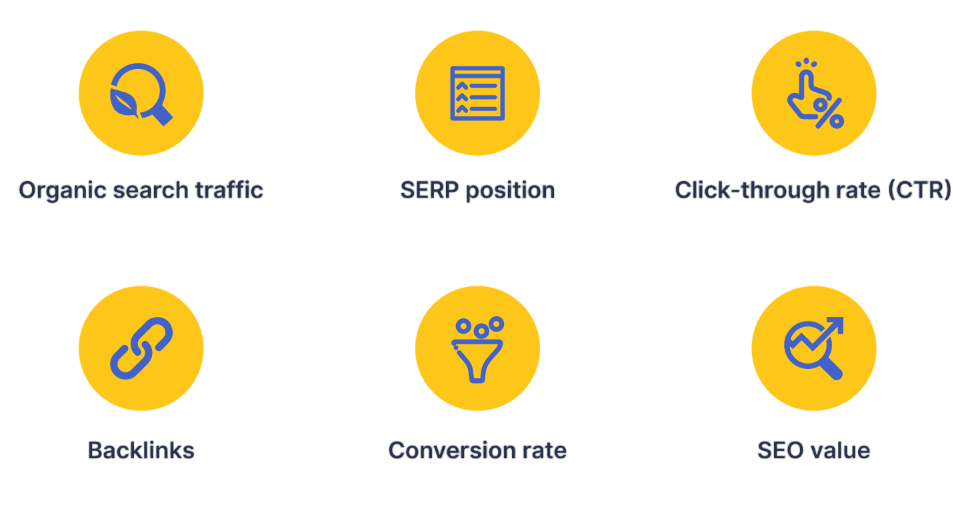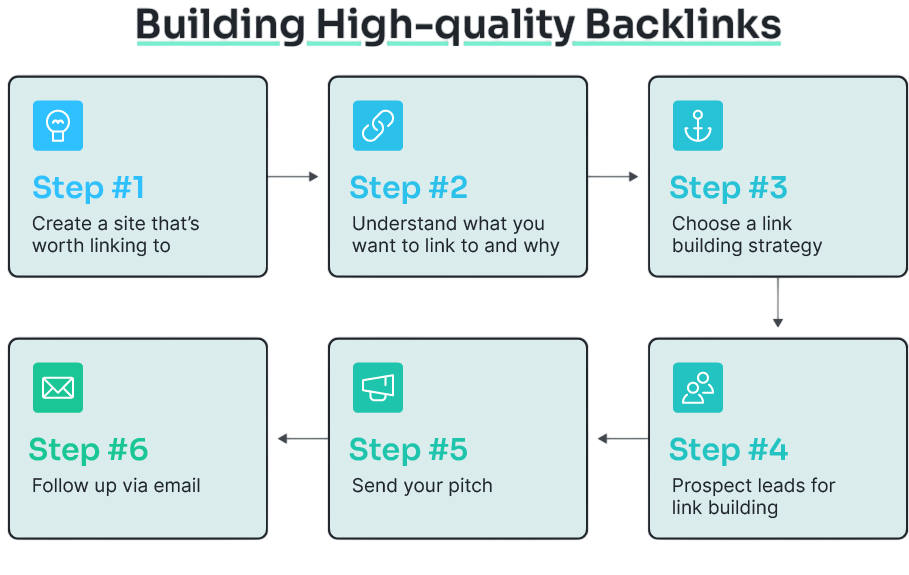
- Introduction to Domain Authority (DA)
- How DA Calculated
- Factors That Affect Domain Authority
- Tools to Check DA
- DA vs Page Authority
- Improving Link Profile
- Role of Content Quality
- Building High-Quality Backlinks
- Technical SEO’s Role
- DA Myths and Misconceptions
- Final Thoughts
Introduction to Domain Authority (DA)
Domain Authority (DA) is a metric developed by Moz that predicts how well a website will rank on search engine result pages (SERPs). It is scored on a scale from 1 to 100, with higher scores indicating a greater likelihood of ranking a concept explored in Digital Marketing Training, where learners understand how metrics like domain authority, page relevance, and backlink strength influence search visibility and keyword performance. DA is not a metric used by Google in its algorithm, but it is widely accepted in the SEO community as a comparative tool. It evaluates the overall strength and trustworthiness of an entire domain, rather than individual pages. DA serves as a valuable benchmarking tool for website owners and marketers aiming to improve their SEO performance. Introduced by Moz, Domain Authority is designed to gauge the ranking strength of a domain relative to other websites. Unlike keyword rankings, which fluctuate regularly, DA provides a holistic view of a site’s ability to perform in search results over time. DA considers factors like the number and quality of inbound links, linking root domains, and the overall trustworthiness of the domain. Although it’s a third-party metric, it is especially useful for competitive analysis, link building, and setting realistic expectations for SEO campaigns.
Ready to Get Certified in Digital Marketing? Explore the Program Now Digital Marketing Online Training Offered By ACTE Right Now!
How DA Calculated
Moz uses a proprietary algorithm involving machine learning models that correlate with Google rankings. The core elements in DA calculation include linking root domains, total number of backlinks, high-quality backlinks, and the MozRank and MozTrust scores. MozRank measures the popularity of a website’s links, while MozTrust evaluates the trustworthiness of those links. Additionally, DA is calculated using a logarithmic scale, making it progressively harder to improve as you approach higher numbers ranking metrics explained in Content Distribution, where marketers learn to interpret link equity, assess trust signals, and optimize domain authority to enhance visibility and credibility across digital channels. This means that increasing a DA from 20 to 30 is easier than moving it from 70 to 80.
Factors That Affect Domain Authority
Several factors influence Domain Authority:
- Linking Root Domains: The number of unique domains linking to your website.
- Total Backlinks: The overall volume of inbound links, both do-follow and no-follow.
- Link Quality: High-quality, authoritative backlinks contribute more to DA than low-quality links.
- Spam Score: A high spam score can negatively affect DA.
- Site Structure and User Experience: A well-structured site with intuitive navigation indirectly supports higher DA.
- Social Signals: Engagement on social platforms may correlate with better link-building potential.
- Content Freshness: Regularly updated content indicates activity and relevance.
- Moz Link Explorer: The official tool to check DA, backlinks, and more.
- Ahrefs: Offers Domain Rating (DR), which is similar to DA.
- SEMrush: Provides Authority Score, another comparable metric.
- Ubersuggest: Neil Patel’s tool that also displays DA.
- Small SEO Tools: A free, simple way to check DA.
- Create Evergreen Content: Timeless, informative pieces that remain relevant.
- Use Data and Research: Content backed by data is more likely to be cited.
- Answer User Questions: Content that solves problems gains more traction.
- Improve Readability: Use headings, bullet points, and visuals.
- Update Regularly: Refresh old posts to maintain accuracy and relevance.
- Skyscraper Technique: Create better content than your competitors and ask their linkers to link to you instead.
- Resource Pages: Get featured on resource pages that link to helpful content.
- Directories: Submit to reputable directories in your niche.
- Press Releases: Share newsworthy updates to gain media attention and links.
- Collaborations: Work with influencers, bloggers, and industry experts.
- Myth: DA is a Google Ranking Factor: It’s not. It’s a third-party metric.
- Myth: Higher DA Guarantees Better Rankings: DA indicates potential, not actual rankings.
- Myth: DA Improves Overnight: Increasing DA requires consistent effort.
- Myth: All Backlinks Are Equal: Link quality matters more than quantity.
- Myth: DA is Static: It changes based on your site and competitors’ performance.
To Explore Digital Marketing in Depth, Check Out Our Comprehensive Digital Marketing Online Training To Gain Insights From Our Experts!
Tools to Check DA
Numerous tools are available to measure Domain Authority ranking metrics explored in Brands Transforming Experience, where marketers assess link equity, trust signals, and brand strength using platforms like Moz, Ahrefs, and SEMrush to benchmark performance and enhance visibility across digital ecosystems.
Each tool offers varying levels of detail, but for consistency, it’s best to stick with one primary tool for ongoing analysis.
DA vs Page Authority
While Domain Authority measures the ranking strength of an entire domain, Page Authority (PA) focuses on individual web pages. Both metrics are scaled from 1 to 100 and use similar ranking algorithms ranking principles explained in Local SEO Tips To Rule Google Maps, where marketers learn how tools like Moz and Ahrefs evaluate domain strength, link equity, and local relevance to improve visibility in Google’s local pack and map-based search results. However, DA provides a macro view of a website’s performance, while PA is ideal for evaluating specific landing pages or blog posts. Improving PA often involves on-page SEO, internal linking, and content optimization, whereas boosting DA requires a broader strategy, including link building and site-wide improvements.
Looking to Digital Marketing Training? Discover the Digital Marketing Expert Masters Program Training Course Available at ACTE Now!
Improving Link Profile
Building strong domain authority (DA) requires a thoughtful approach to link profile development. By using targeted link-building techniques, organizations can improve their online visibility and search engine rankings.Guest blogging stands out as an effective method. It allows businesses to share valuable content on reputable websites while creating authoritative backlinks a strategy emphasized in Digital Marketing Training, where learners master outreach techniques, content alignment, and SEO-driven link building to boost domain authority and online visibility. Another useful strategy is broken link building. This helps companies find and replace non-working links with relevant, high-quality content, benefiting both website owners and link creators. Link reclamation adds to this by recovering lost or broken backlinks, making link profile management more effective. Analyzing competitors closely provides more insights. It helps businesses replicate high-quality backlink sources and find potential link placement chances. Proactive outreach campaigns with influencers and industry websites can also reveal valuable link-building opportunities. In the end, success depends on prioritizing quality over quantity. It’s important to maintain natural, ethical link-building practices that show real value and relevance in the digital landscape.
Role of Content Quality
Content is a foundational element for improving Domain Authority. High-quality content naturally attracts backlinks, shares, and engagement. To boost DA through content strategies often amplified in Social Media Has Changed the Music Festival Scene, where festivals leverage viral storytelling, influencer amplification, and real-time engagement to generate organic mentions and inbound links. By aligning content with audience interests and platform trends, organizers build authority, visibility, and long-term SEO equity.

Valuable content enhances user experience and encourages reputable sites to link to yours.
Preparing for Digital Marketing Job Interviews? Have a Look at Our Blog on Digital Marketing Interview Questions and Answers To Ace Your Interview!
Building High-Quality Backlinks
High-Quality Backlinks remain the cornerstone of DA improvement. Here are proven techniques:

Avoid low-quality backlinks, as they may lead to penalties or reduce your DA.
Technical SEO’s Role
Technical SEO is a key strategy for improving website performance and search engine visibility. By focusing on important technical elements, businesses can greatly improve their online presence and user experience. Site speed is vital faster-loading pages not only increase user engagement but also boost search rankings. Mobile optimization is now essential, ensuring smooth functionality on all devices technical priorities emphasized in Digital Marketing Certification Process, where learners master performance tuning, responsive design, and mobile-first indexing to meet evolving SEO standards and deliver seamless user experiences across platforms. An XML sitemap helps search engines index website content efficiently, while a well-set-up robots.txt file guides crawler access. Structured data and schema markup can significantly enhance search result listings, making your content more appealing and informative. Moreover, using a secure HTTPS protocol builds user trust and signals website credibility to search engines. These connected technical SEO practices work together to improve site health, potentially raising domain authority and overall digital performance.
DA Myths and Misconceptions
There are several myths surrounding Domain Authority:
Understanding these misconceptions prevents misguided efforts in your SEO campaign.
Final Thoughts
Domain Authority is a powerful yet indirect indicator of a website’s SEO potential. While it is not used by Google, it provides valuable insights into how well your site is likely to perform in search results compared to competitorsImproving DA requires a comprehensive strategy involving quality content creation, ethical backlink building, technical SEO, and consistent monitoring all pillars of effective search optimization taught in Digital Marketing Training, where learners gain hands-on expertise in building authority, enhancing visibility, and sustaining long-term growth through data-driven techniques. By focusing on these areas, businesses can strengthen their online presence, attract more traffic, and ultimately improve conversions. Treat DA as a compass rather than a destination; it guides you toward sustainable and effective SEO practices.




